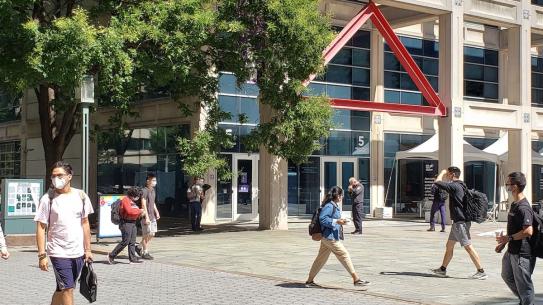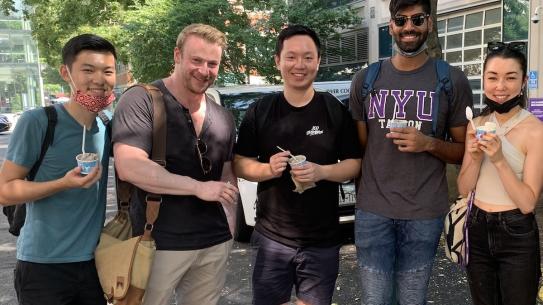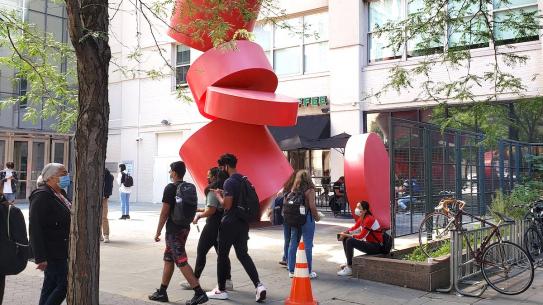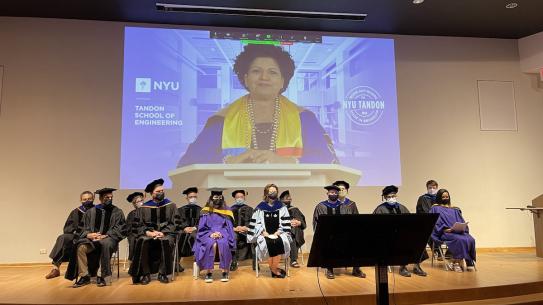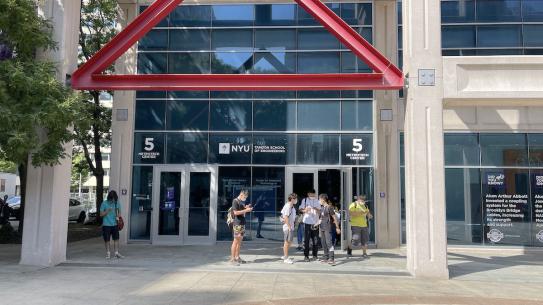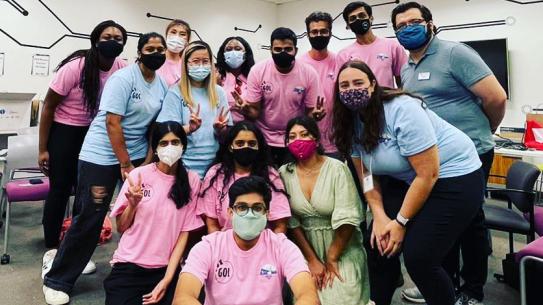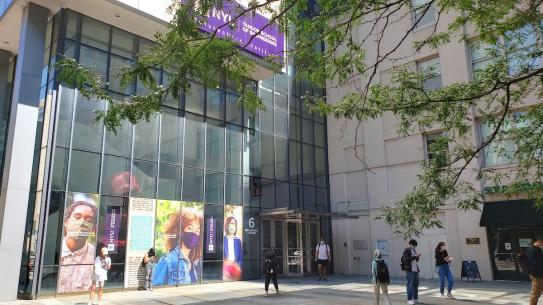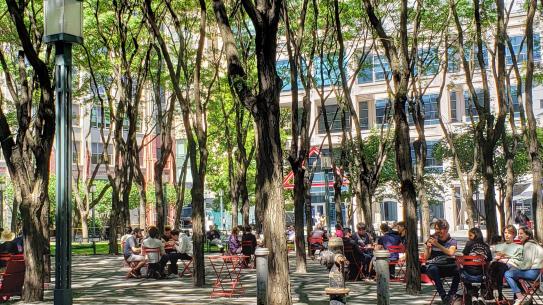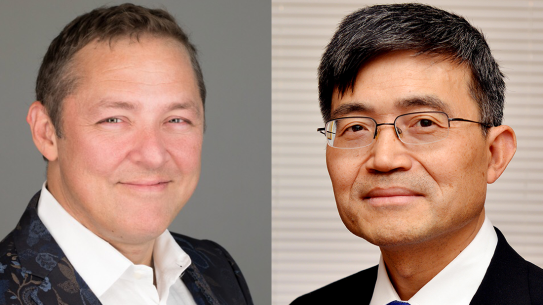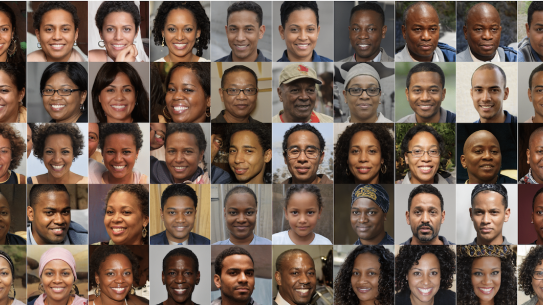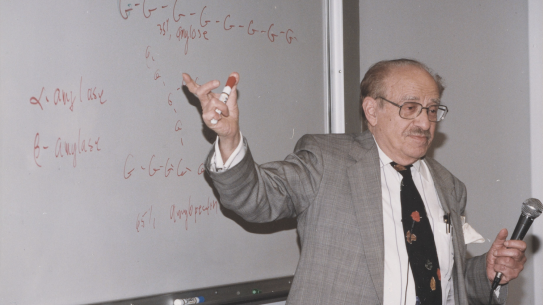Hearty welcomes, good advice, and plenty of reasons to celebrate
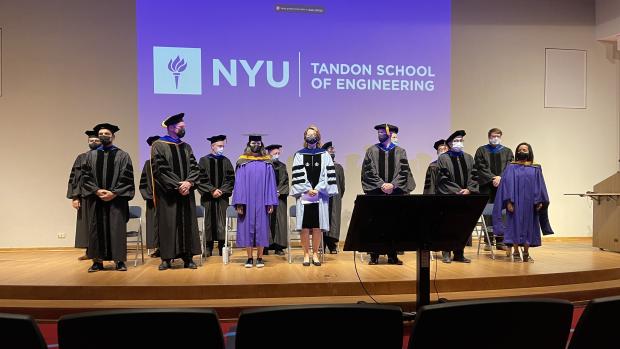
Convocation 2021
Whether you’re a member of the incoming Class of 2025, a second-year student setting foot in the MetroTech Center for the first time because of the pandemic, or a graduate student embarking on the next step in your academic journey, it’s no doubt been an exciting few weeks for you. And as the semester officially kicked off, that excitement was palpable, particularly during the convocation and new-grad-student ceremonies arranged to welcome everyone who could make it back to campus in-person (with those who couldn’t tuning in via live stream).
Associate Dean of Student Affairs Rosemary Ampuero kicked off the New Graduate Student Orientation — part of a jam-packed schedule of events that included not just tours of the campus but of New York City landmarks and highlights — by acknowledging the pains caused by the COVID-19 pandemic. “The last few months have been very difficult,” she said, adding that the Tandon community must also “acknowledge our resilience.”
View wisdom and advice from student orientation leaders:
Also on deck to give their perspective were Orientation Captain Kathy Ching, who works as a teaching assistant in Tandon’s MakerSpace and who encouraged newcomers to explore there, and Assistant Director of Student Advocacy, Compliance and Student Affairs Deanna Rayment, who reassuringly described the many wellness, bias-reporting, and COVID-19 related resources offered to students. Associate Dean for Undergraduate and Graduate Academics Peter Voltz, also an alum, explained that he had once been right where the new grad students were and remembered it well. It was easy, he admitted, to unwittingly become overwhelmed. “It’s best to work hard from the very beginning,” he counseled, “and even get ahead when you can.”
Some of the biggest cheers of the event were reserved for Dean Jelena Kovačević, who opened by expressing her happiness at seeing everyone “in 3D” and closed by asserting, “If you can’t tell, I’m smiling beneath my mask.” In between, she explained that what she will continue to honor from the pandemic is “the feeling that we’re in this together, and that we must continue to support each other, be kind, and share when we can.”
“That willingness to jump in when needed is a foundational value in engineering — a field whose goal is to find solutions to local and global concerns through technology and innovation,” she continued. “But at Tandon, we go further to uphold aspirational values that make us the School we are, and a true community of what we call unconventional engineers. We embrace the concept of multidisciplinary study wholeheartedly. Complex issues call for complex solutions, and we think the best way to create those solutions is to work across topics, and in the sometimes labyrinth intersections between them. Do not stay just in your own lab or academic discipline; I encourage you to explore what’s being done in other labs and other departments. You’d be amazed at what has been achieved when computer scientists confer with legal scholars, as they regularly do at our Center for Cybersecurity; or when experts in deep learning work alongside electrical engineers at NYU Wireless to chart the future of 6G. You’ll find peers and mentors from across the school if you look, and your own projects will benefit.”
The Dean was similarly inspirational addressing the undergraduates at their own welcome event. “If you want to be on the cutting edge, you need to make sure that you are tackling current issues,” she advised them. “You’re studying in the fastest-growing technology hub in the country, so you’ll have daily motivation to improve our cities and the lives of the people who live here. Just in the last year, our faculty, students, and alumni have made hiring more fair, software more impenetrable to hackers, misinformation harder to spread, manufacturing more sustainable, transportation more efficient, cities more connected, and cancer easier to treat. How will you move the needle?”
The other inspiring speakers at the undergraduate convocation included:
- Chandrika Tandon, Chair of the NYU Tandon Board and NYU President’s Global Council, and Vice Chair of the NYU Board of Trustees, who encouraged attendees to share big dreams, saying: We dream that you will invent the cure for diseases known and unknown. We dream that you will invent new tools to explore and enhance human possibilities. Perhaps you’ll take someone to the moon in a self-driving vehicle.In all of these things years of living, the one thing I know is that anything is possible”
- Robert V. Jones, the President of the Alumni Association, who drew upon school history to remind students that they were “walking a path forged by alumni like Charles Flint, who founded the company that became IBM; Jasper Kane, who made it possible to mass-produce penicillin, saving countless lives; and Thomas Joseph Kelly, who led the team that designed and tested NASA’s first Lunar Module.”
- Assistant Dean for Academic and Curricular Affairs Jack Bringardner, who gave a heartfelt tribute to the late Industry Professor Gunter Georgi, described Tandon’s annual Rapid Assembly and Design Challenge (RAD), which is inspired by the National Academy of Engineering’s Grand Challenges and which asks first-year students to identify a problem that needs to be solved, develop a solution, and build a working prototype; and announced the winners of the Nick Russo Award for Outstanding General Engineering Design.
- Alexandra Brinton, the President of NYU Tandon Undergraduate Student Council, who predicted, “Your first few years will change you forever”
It was easy to imagine that change was already underway, as attendees soaked up the advice, made note of the practical information, and took in the encouragement and inspiration before heading out to tackle life as Tandon students.
Watch all the Convocation speeches on YouTube:
- Rosemary Ampuero, Associate Dean of Student Affairs
- Jelena Kovačević, Dean of the NYU Tandon School of Engineering
- Chandrika Tandon, Chair, NYU Tandon Board
- Jack Bringardner, Assistant Dean for Academic and Curricular Affairs
- Robert V. Jones, President of the Polytechnic Alumni Association
- Alexandra Brinton, Undergraduate Student Council President
Scenes from Campus
Our newest students by the numbers
- Our incoming first-year undergraduates come from 23 countries and 38 U.S. states
- The largest incoming class of graduate students hail from 48 countries and 42 U.S. states



